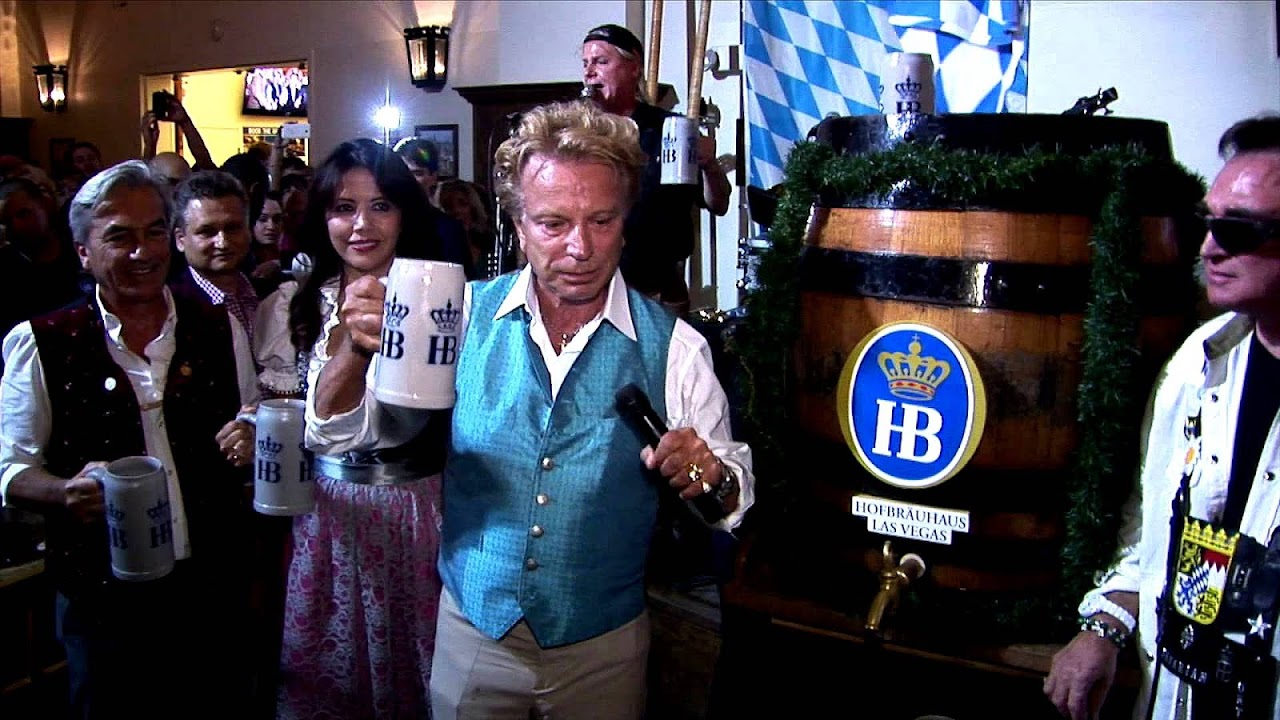
The Staatliches Hofbräuhaus in München (public Royal Brewery in Munich, also Hofbräu München) is a brewery in Munich, Germany, owned by the Bavarian state government. The Hof (court) comes from the brewery's history as a royal brewery in the Kingdom of Bavaria. The brewery owns the Hofbräuhaus am Platzl, the Hofbräukeller and one of the largest tents at the Oktoberfest (Hofbräu-Festzelt).
There are many types of beer brewed using original recipes handed down by Wilhelm V, the Duke of Bavaria. The current beers produced include a Weißbier and Helles, Maibock, Dunkel and Oktoberfest lagers.
The Hofbräuhaus am Platzl in Munich inspired the song "oans, zwoa, g'suffa" (The Bavarian dialect for: "one, two, down the hatch").

Maps, Directions, and Place Reviews
History
The Hofbräuhaus am Platzl, Munich's famous "hofbrauhaus", was founded in 1589 by the Duke of Bavaria, Wilhelm V. It is one of Munich's oldest beer halls. It was founded as the brewery to the old Royal Residence, which at that time was situated just around the corner from where the beer hall stands today. The beer quickly became quite popular thanks to the first brewer, Heimeran Pongratz, and the famous "Bavarian Beer Purity Law" of 1516 that stated that only natural ingredients could be used in the brewing process.
Maximilian I, Wilhelm's son and heir, did not care much for the popular Braunbier, which was the dark and heavy brown beer. So, in the beginning of the 17th century Maximilian I turned the brewery's focus onto wheat beers and forbade all other private breweries to brew wheat beer, thus creating a monopoly. In 1612, Heimeran Pongraz's successor, Elias Pichler, was under pressure to brew a stronger beer, hence the Maibock. In fact, the Maibock beer became so famous that it once saved the city from annihilation. When King Gustavus Adolphus of Sweden invaded Bavaria during the Thirty Years' War in 1632, he threatened to sack and burn the entire city of Munich. He agreed to leave the city in peace if the citizens surrendered some hostages, and 600,000 barrels of Hofbräuhaus beer.
German Restaurant In Las Vegas Video
Franchises
After World War II, thanks in part to legions of American soldiers stationed in Munich bringing home beer mugs with the "HB" logo, the Hofbräuhaus quickly became Munich's number one tourist attraction. Demand for Hofbräuhäuser in other parts of the world began almost immediately. The first Hofbräuhaus in Europe outside Germany was opened in Genoa, Italy, see Hofbräuhaus Genova. There is also a Hofbräuhaus in Stockholm, Sweden.
In 1968, Helmut Meyer opens the first Hofbräuhaus outside of Europe, in Market Lane, Melbourne, Australia, where it still operates today. The complex includes Alpine Bar and Bier Hall.
Since October 2005, there has been a Hofbräuhaus in Hamburg, Germany. In October 2008, a Hofbräuhaus in Bremen, Germany, was opened. There are also Hofbräuhäuser in Regensburg, Kaiserslautern, Berlin and Berchtesgaden.
Hofbräuhaus franchises have opened in several places around the United States of America. Newport, Kentucky (Greater Cincinnati, Ohio) in April, 2003, Las Vegas, Nevada in January, 2004 which also created the paddle shot game which can be asked for and received by one of the waitresses, Pittsburgh, Pennsylvania in March, 2009, Chicago, Illinois in January, 2013, Cleveland, Ohio in October, 2014 and Columbus, Ohio in November, 2014. As of September 2015 there is also a franchise in St. Petersburg, Florida. There is also a chain of Hofbräu Beer Gardens in Miami, Florida, Panama City Beach, Florida, New York, New York, and Milwaukee, Wisconsin which provide the traditional food and but do not brew their own Hofbräuhaus beer, only serve it. The first Hofbräuhaus in Latin America was recently opened in Belo Horizonte, Brazil in November 2015.
The Marriott International in Dubai has licensed the brand and has opened a restaurant in their hotel. The Hofbräuhaus Seoul was the first Hofbräuhaus in Asia. There was also a franchise at the Don Mueang International Airport in Bangkok.
Source of the article : Wikipedia


EmoticonEmoticon